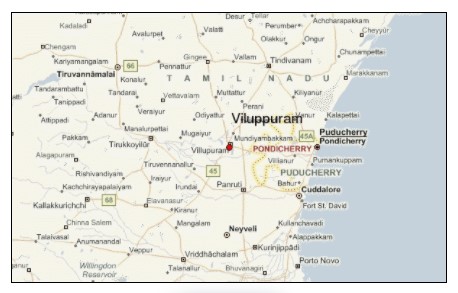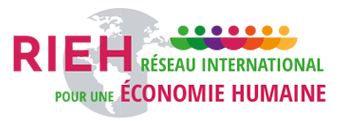 Actions des territoires en marche
Actions des territoires en marche 

Inde (Tamil Nadu)
District de Villupuram Territoire de Pondichéry
Promouvoir l’équilibre écologique et restaurer les biens communs pour la sécurité sociale des marginalisés.
La population des districts de Villupuram et de Pondichéry vit dans des conditions très difficiles marquées par la pauvreté, l’accaparement des terres, l’usage de méthodes agricoles qui détruisent les sols. Il y a aussi beaucoup de violences visant les dalits et les femmes.
L’action territoriale vise à la fois à promouvoir des alternatives économiques et à faire respecter les droits des marginalisés.
Elle implique beaucoup d’organisations de la société civile avec une place particulière pour les groupes de femmes dalits.
Les principales activités sont :
- Constituer des Comités d’action de villages, Village Action Committees (VAC), pour promouvoir l’agroécologie grâce des collectifs de producteurs de produits biologiques.
- Protéger et promouvoir les biens communs des villages pour assurer la souveraineté alimentaire et restaurer l’équilibre écologique.
- Constituer et organiser le fonctionnement régulier de conseils de villages (‘grams sabha’) qui organisent des réunions et influence les politiques locales.
- Mettre en place des centres modèles en agroécologie, des pépinières de semences, de plantes médicinales, des laboratoires pour produire des produits phytosanitaires naturels et des fertilisants organiques (district de Pondichéry)
- Organiser des festivals pour les moissons et la distribution de semences locales.
- Organiser des sessions d’échanges de savoir et de formation croisée.
La principale organisation qui anime l’action est l’IRDS (INTEGRATED RURAL DEVELOPMENT SOCIETY).
PROMOTING ECOLOGICAL BALANCE AND RESTORING COMMONS FOR THE SOCIAL SECURITY OF MARGINALISED
Country/Local territory:
INDIA (Villupuram and Pondicherry Districts)
Main characteristics of the territory:
- The territories are prone to atrocities and organized violence on the marginalised sections of the society, particularly Dalits and women.
- Lack of basic needs among the marginalized in villages like potable drinking water, housing plots, decent burial grounds, approach roads to their dwellings, access to public institutions.
Human Economy issues:
- Grabbing of natural resources leading to the destruction of organic link between the humans and nature, enforced-migration, unemployment and under employment leading to hunger and poverty, discrimination of the low caste people, growing discrimination of women, dropping out of children from schools and increasing of child labour.
- Synthetic fertilizers have poisoned the soil micro-flora by altering the chemical and physical properties of the soil, which in turn affected the entire social system. The pesticides residues in the food chains have endangered the life sustaining system locally.
- Landless among the marginalised sections
Picture illustrating the issue
Main objective of the action:
- Towards establishing an alternative model of development through collective actions that would fulfil the basic needs of all people and for the conservation of the ‘mother earth’.
- To promote organic farming in the pieces of lands owned by the marginalised, including their homestead lands and the Panchami lands reclaimed by Dalit women and to protect the commons in their respective villages with the active participation of Dalit women and young people so that they ensure a life with dignity and equality and also address the issue of climate change and sustain the Dalit women’s land struggles.
Main actors:
- Land Rights’ Federation,
- Women self help groups,
- ‘Ambedkar Peravai’ (local youth associations),
- University student’s clubs,
- local Parish Councils,
- Village Councils,
- Village Administrative Officers,
- Farmers’ Cooperatives,
- the Agricultural Workers Union,
- the Sanitary Workers’ Union,
- Municipalities in Pondicherry,
- Block Development Officers,
- Agricultural Development Programs Officers.
Main activities:
- Forming Village Action Committees (VAC) to promote organic farming. Establish ‘farmers collectives’ of organic producers,
- Protection and promotion of village commons to ensure the food sovereignty and to restore the ecological balance
- Facilitate regular functioning of ‘grams sabha’ (village council) meetings and influence government policies.
- Establish model centres on agro-ecology with cattle, poultry, goats, and sheep.
- Establish nurseries to raise seedlings, medicinal plants and saplings for distribution among the villages.
- Promote manufacturing organic manure and natural pest repellents.
- Organise and facilitate harvest festivals, organic food and native seeds festivals
- Mobilize the trained young people to procure agricultural and farm produces from the farmers and sell them directly to the consumers.
- Facilitate cross learning meets with social movements, community organisations, trade unions, educational institutions and NGOs who are working on promoting positive alternatives in their respective region on solidarity economy.
- Generating organic fertilizer from vegetable waste in Pondicherry District
Picture illustrating an activity
Organization that animates the territorial dynamics:
Field team of IRDS (INTEGRATED RURAL DEVELOPMENT SOCIETY), India in partnership with a team of local community based organizations (CBOs), regional government officials, and grassroots civil society associates of the territory
Picture of animation team
Organization that animates the investigations
INHE-Asia office in collaboration with INHE-India (evaluation & monitoring team), the Director and core committee of IRDS, India

Devenir sympathisant
Vous pouvez devenir un sympathisant de l’action menée sur le District de Villupuram Territoire de Pondichéry.
En étant sympathisant,
- Vous êtes alerté dès qu’une information sur cette action paraîtra sur le site
- Vous pouvez faire connaître autour de vous l’action
- Vous pouvez apporter votre soutien financier à l’action
- Vous pouvez adresser aux porteurs de l’action des demandes d’information, leur poser des questions
- Vous pouvez proposer en fonction de vos compétences un appui technique
- Si vous vous rendez sur place, vous serez accueilli et pourrez découvrir concrètement comment l’action se déroule
- En fonction des opportunités, vous pourrez être convié à des rencontres avec les porteurs de l’action.










